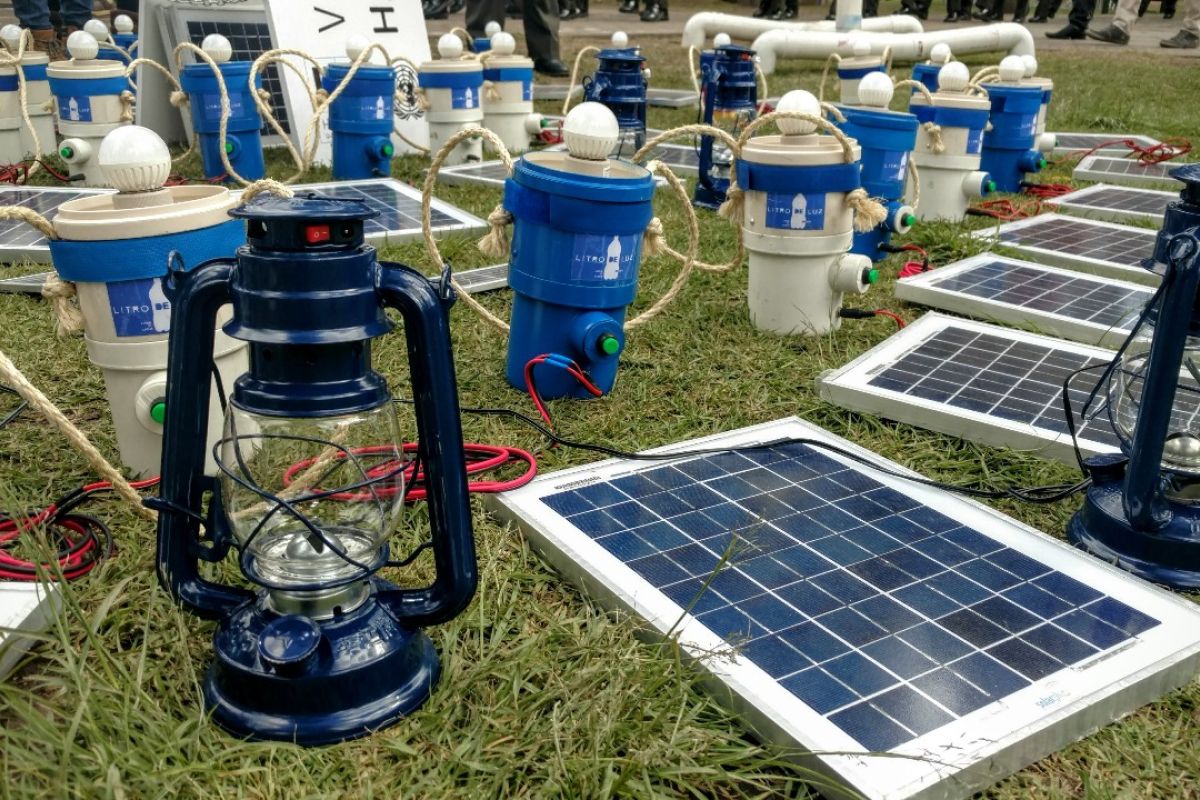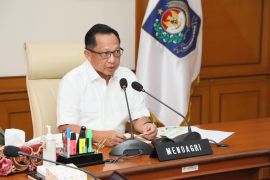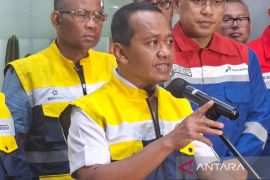This marks a significant milestone in the nation's energy transition trajectory and aligns with the country’s Roadmap for Sustainable Development Goals, the UN noted in a statement on its website, Thursday.
Finance committed under this Energy Compact is substantial, exceeding US$122 billion (Rp1.92 quadrillion), for which several financing strategies are being considered. It will be used to increase the share of renewable energy, targeting 23 percent by 2029, with a focus on significant solar and wind power capacity expansions, reaching up to 5.3 GW.
The Government of Indonesia also plans to accelerate grid connectivity in selected areas to enable greater penetration of renewable energy, especially in industrial estates and economic zones.
Indonesia’s overall ambition for sustainable development goes beyond SDG7 and includes cross-cutting indicators, such as strengthening economic resilience for equitable growth and climate mitigation, requiring substantial financial investments of up to US$272 billion (Rp4.29 quadrillion) by 2030.
The government has already identified US$5 billion (Rp78.8 trillion) worth of investments to expand renewable energy capacity by 2030. The nation plans to improve the energy intensity of its economy, with a target of energy intensity reduction at one percent per annum.
It also aims to achieve a higher reduction in annual greenhouse gas emissions in the energy sector by 2030, increasing its annual emission reduction capacity by 24.5 percent, from 358 MtCO2e to 446 MtCO2e.
This is in line with the global objective of achieving net-zero emissions by 2060, according to the statement.
The Compact commitment is complimented by Indonesia’s Joint Energy Transition Plan (JETP) that focuses on community preparation and addressing challenges, such as the creation of equitable green jobs.
The government is actively engaging with financial authorities and pushing regulatory efforts to create roadmaps for sustainable finance, utilizing instruments like green bonds and SDG-linked bonds. Recently, the government also issued regulations on energy conservation.
The regulation mandates the nationwide implementation of energy efficiency programmes, including mandatory energy management, Minimum Energy Performance Standards (MEPS) and labelling of electrical appliances, electrification, and electric vehicle (EV) implementation, fuel economy standards, and the promotion of public awareness through campaigns and awards. Through these initiatives, the government will look to improve upon its overall SDG Index score of 70.2, on a scale of 100, according to the Sustainable Development Report.
“We seek to share achievements and accelerate conversations, considering the green economy as a game-changer," Deputy Minister for Natural Resources and Maritime Affairs and Head of SDG Secretariat at the National Development Agency (BAPPENAS), Vivi Yulaswati, said while highlighting Indonesia’s commitment at COP28.
"Through the Energy Compacts, Indonesia is focusing on massive development for renewable energy, including floating solar panels, mandatory biomass, and transitioning from diesel to renewable energy power plants,” she remarked.
Damilola Ogunbiyi, CEO and Special Representative of the UN Secretary-General for Sustainable Energy congratulated Indonesia on this monumental achievement.
“I am delighted to extend my heartfelt congratulations to the Republic of Indonesia on its ambitious Energy Compact. This reflects Indonesia's unwavering commitment to sustainable development and a greener future," Ogunbiyi stated.
Sustainable Energy for All is proud to continue our support to the Government of Indonesia as it paves the way for a brighter and cleaner future for its citizens and the global community, she said.
The UN in Indonesia along with Sustainable Energy for All, recently developed a One UN Strategy through which 10 UN agencies will provide policy advice, capacity building, access to finance, knowledge sharing, and technical assistance.
“Supporting the Government of Indonesia towards a sustainable energy future has been a key focus area for the UN in Indonesia," Valerie Julliand, the UN resident coordinator for Indonesia, stated.
"We are pleased at the launch of this Energy Compact, which has ambitious targets on renewable energy, grid connectivity and energy conservation, among others. We will also continue to support the government on the Just Energy Transition Partnership,” Julliand remarked.
Energy Compacts are voluntary, trackable commitments launched at the High-Level Dialogue on Energy convened by the UN Secretary-General in September 2021.
They are designed to spur action towards SDG7 in line with net-zero goals and were named a High-Impact Initiative for achieving the SDGs by the Secretary-General in 2023.
Related news: SDG achievement requires conducive environment: House Speaker
Related news: Bappenas to monitor SDG implementation in West Papua
Related news: Localization can help achieve 2030 SDG agenda: minister
Reporter: Asri Mayang Sari
Editor: Azis Kurmala
Copyright © ANTARA 2024












